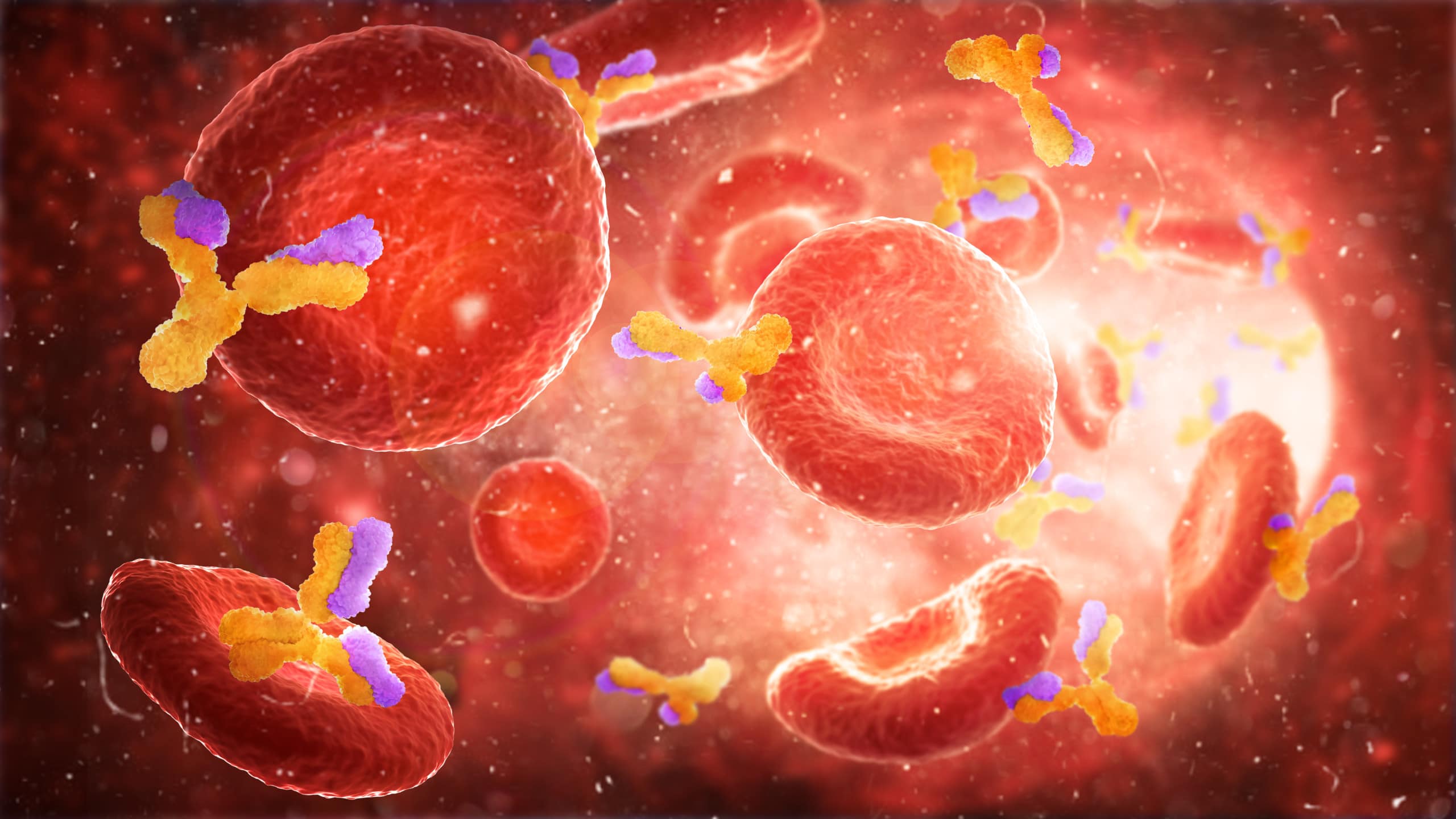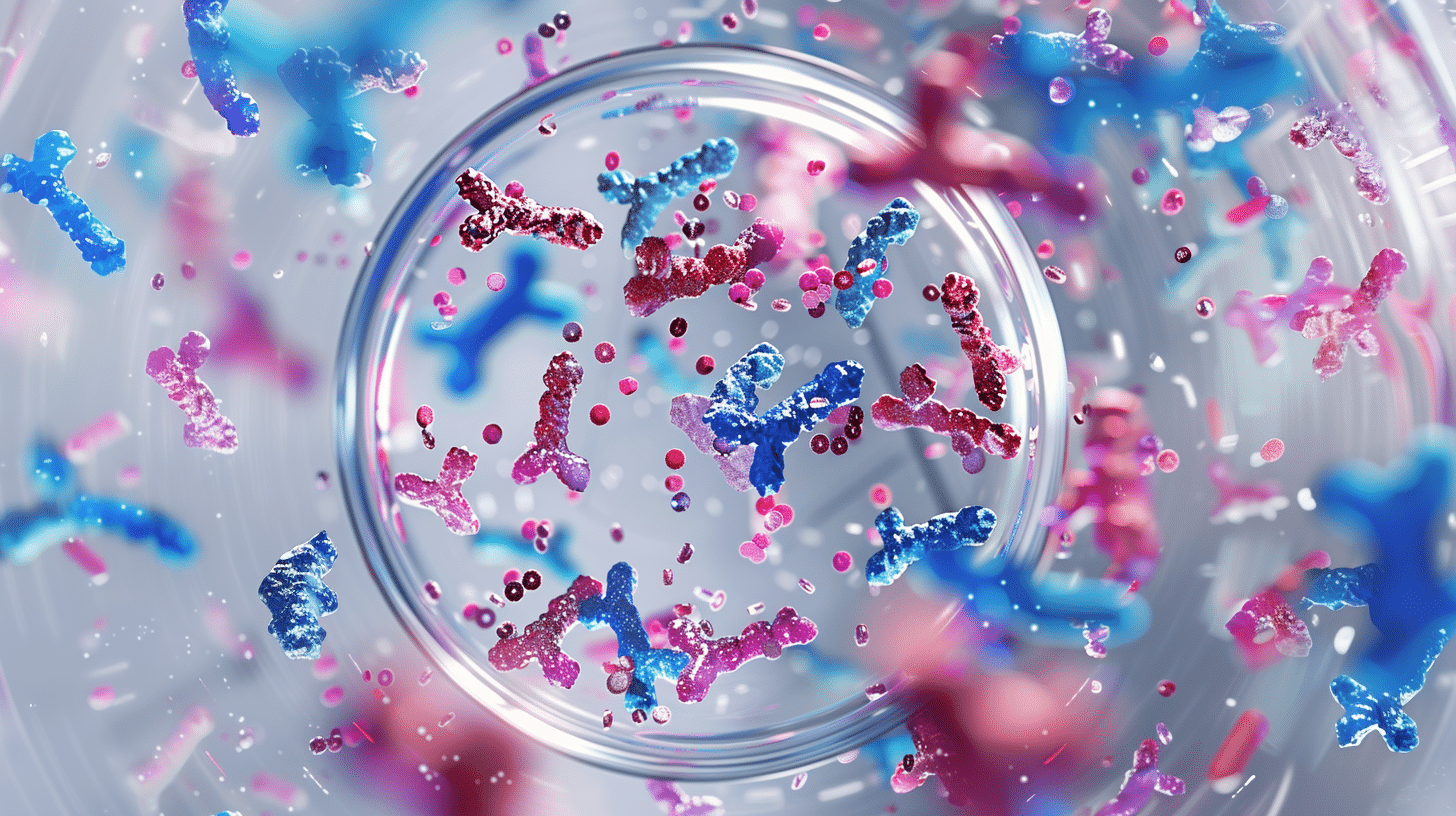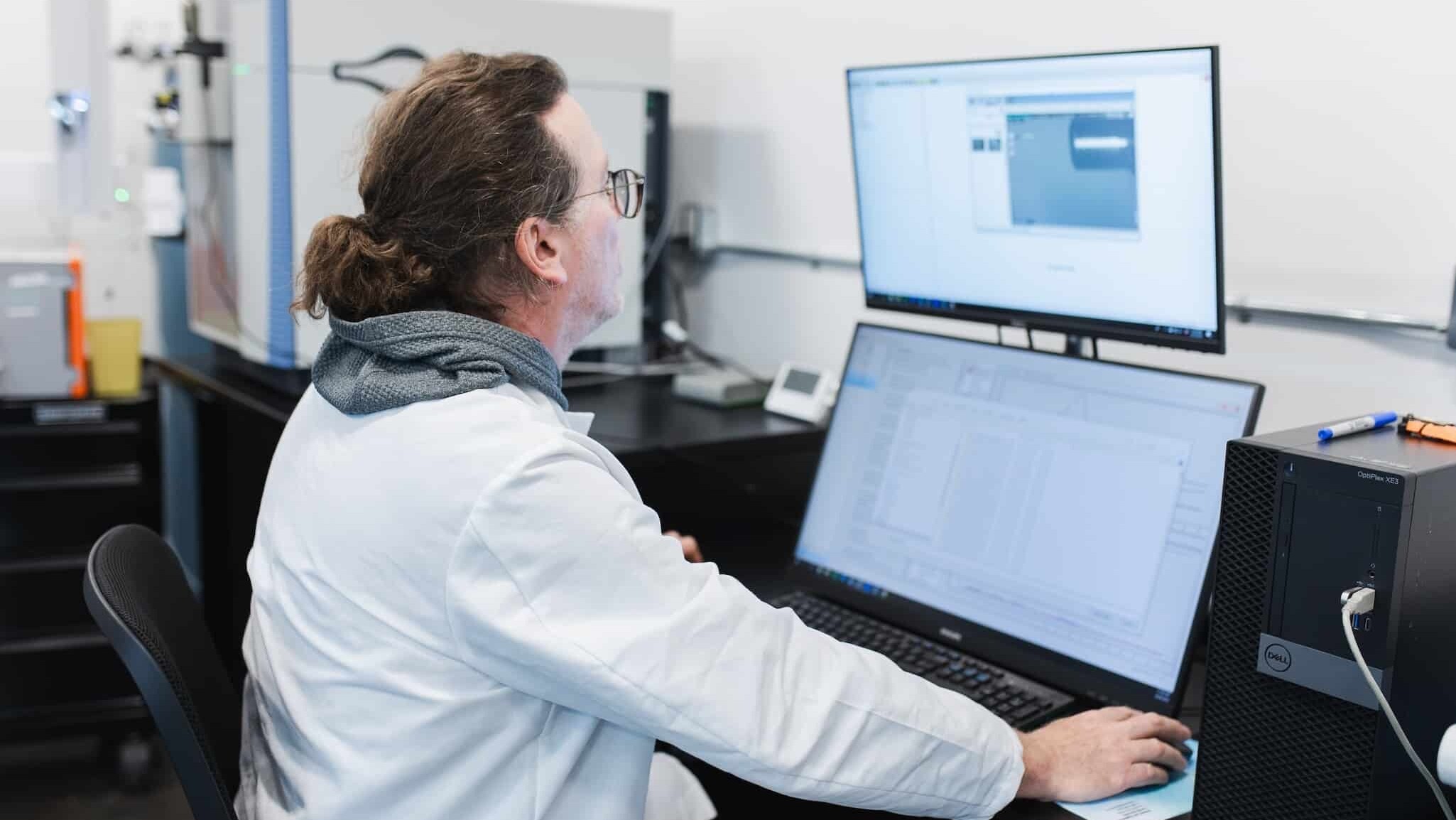In Vitro Diagnostics.
Ensure and Validate at Every Step of The Way.
Immunoassays provide a fast, simple, and cost-effective method of detection with high sensitivity and specificity. They exploit the properties of antibodies to identify disease biomarkers, drugs, and other analytes. Without a secure stream of validated mAbs, IVD developers and manufacturers risk nonspecific binding, batch variability, or loss of supply – leading to wasted time and resources or project abandonment.
Sequencing the protein of the antibody reagent in parallel to assessing its affinity and specificity facilitates the development of reliable kits and immunoreagents securing research and manufacturing reproducibility. Obtaining protein sequences also enable recombinant expression, yielding consistent batches with predictable biological activity. Next generation protein sequencing (NGPS) can also help avoid issues with mAbs stemming from cell line drift, gene loss, and gene mutations.
Services for In Vitro Diagnostic Developers.
We support IVD companies and reagent manufacturers in all stages of antibody selection, development, characterization, validation and production. Contact us to discover how we can help with your IVD application.
Antibody Sequencing & Discovery Services.
De Novo mAb Sequencing
Safeguard the sequence of high-demand immunoreagents for posterity, and/or IP, or to meet regulatory guidelines. Secure your antibody supply chain.
Explore Monoclonal Antibody Sequencing Services
pAb to mAb Conversion
Convert your polyclonal-based assay to a recombinant form, for increased reproducibility, and avoid costly re-validation.
Explore Polyclonal Antibody Sequencing Services
Peptide Mapping for Quality Control
Routinely certify immunoreagents by confirming the expected sequence for the highest quality with minimal troubleshooting.
Explore Peptide Mapping Service
SPR Binding Kinetics
Assess and validate antibody binding affinities, on-rates and off-rates, ensuring reagents are fit-for-purpose in your assay and adhering to quality by design principles.
Explore SPR Binding Kinetic Service
HDX-MS Epitope Mapping
Assess and validate antigenic epitopes of antibody products, ensuring the correct antibody targets and increased sensitivity of your assay through epitope diversity.
Explore HDX-MS Epitope Mapping Service
Antibody Characterization Services
Our deep expertise working with antibodies, high throughput mass spectrometry and advanced software will give you critical insights in your antibody.
Explore Antibody Characterization Services
Application Publications.
Developing Diagnostic Tools for Challenging MGTS Cases
To develop robust mAb biologics, it is vital to fully characterize the protein, including its primary sequence, mutations, and important post-translational modifications
The Power of Recombinant Antibody Cocktails
Written by: Jenna Kerry, MSc Published: June 10, 2024 Contents Introduction Advantages of Recombinant [...]
Priming Agents Transiently Reduce the Clearance of Cell-Free DNA to Improve Liquid Biopsies
To develop robust mAb biologics, it is vital to fully characterize the protein, including its primary sequence, mutations, and important post-translational modifications
Maximizing Liquid Biopsy Sensitivity through the Power of DNA-Binding Antibodies
In this webinar, you will learn: Non-Invasive Liquid Biopsies: Cell-free DNA as a key [...]
“The protein sequence allowed us to control the antibody, affinity maturation, and do large production. Being able to produce 20mg of Ab is big advantage.”
Talk to Our Scientists.
We Have Sequenced 10,000+ Antibodies and We Are Eager to Help You.
Through next generation protein sequencing, Rapid Novor enables reliable discovery and development of novel reagents, diagnostics, and therapeutics. Thanks to our Next Generation Protein Sequencing and antibody discovery services, researchers have furthered thousands of projects, patented antibody therapeutics, and developed the first recombinant polyclonal antibody diagnostics.
Talk to Our Scientists.
We Have Sequenced 9000+ Antibodies and We Are Eager to Help You.
Through next generation protein sequencing, Rapid Novor enables timely and reliable discovery and development of novel reagents, diagnostics, and therapeutics. Thanks to our Next Generation Protein Sequencing and antibody discovery services, researchers have furthered thousands of projects, patented antibody therapeutics, and ran the first recombinant polyclonal antibody diagnostics




